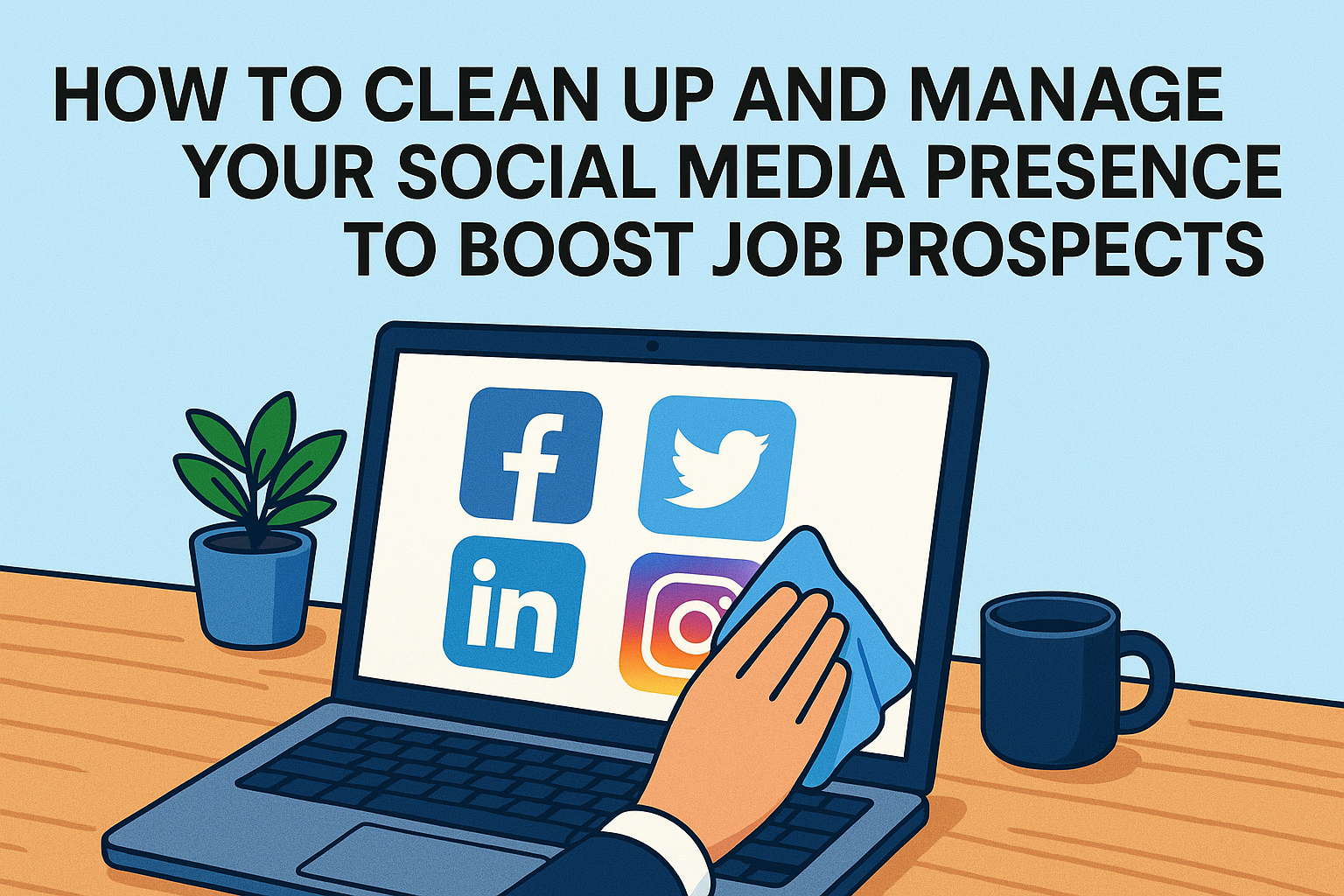In today’s digital age, your social media profiles often serve as the first impression for potential employers. Before a recruiter even reads your resume, they may search your name online — and everything you’ve posted, shared, or commented on could influence their decision. Studies show that a significant portion of hiring managers screen candidates via social media. Cleaning up and curating an intentional, professional online presence can help tip the scales in your favor.
This article offers a step-by-step guide to auditing, pruning, optimizing, and maintaining your social media presence to support your job search and long-term professional reputation.
Why Your Social Media Matters in Hiring
- Over 70% of recruiters admit they check candidates’ social media profiles.
- A survey by CareerBuilder found that 70% of employers use social media to screen candidates; 57% said they’ve found content that led them to not hire someone.
- Because of “online vetting” practices, even years-old posts or obscure accounts may resurface and affect perceptions.
- Social media is not just a risk — it’s also an opportunity: curated content, professional engagement, and consistent branding can help you stand out.
1. Perform a Social Media Audit
- Map Your Accounts
- List every social media, forum, blog, or website where your name, email, or handle is used — not just the major ones.
- Search your name (and common variations) in Google, Bing, and other engines. Note what shows up on page one.
- Use “view as public” or similar features to see how your profile appears to strangers.
- Flag Content for Review Look for posts, comments, or media that might raise concerns, including:
- Profanity, insults, or harassment.
- Political or polarizing rants.
- Complaints about past jobs, colleagues, or managers.
- Images of intoxication, illegal acts, or unsafe behavior.
- Posts that may be misinterpreted or taken out of context.
Create a list or spreadsheet marking: Delete, Archive/Hide, or Revise.
2. Clean Up What You Can
- Delete or Archive
- Delete posts or comments that clearly conflict with a professional image.
- When deletion isn’t possible, archive, hide, or make the post “only me” (or friends-only).
- Untag yourself from photos or posts by others that don’t represent you well.
- Adjust Privacy Settings
- Set personal accounts (Instagram, Facebook) to “Friends only” or “Private” while you clean.
- Review “Tag review” and “Timeline review” settings so you can approve what appears.
- Limit who can see posts, who can comment, and who can view your profile.
- Deactivate or delete unused or outdated accounts to reduce your digital footprint.
3. Optimize What Remains
- Update Profile Photos & Bios
- Use a clear, up-to-date, neutral or professional photo.
- Rewrite bios to highlight your professional goals, skills, or interests. Be consistent across platforms.
- Use a clean handle or username (if possible) that’s simple and uniform.
- Curate Positive Content
- Share or post articles, updates, and commentary relevant to your field or interests.
- Pin or highlight “showcase” posts you’re proud of — such as projects, recognition, or volunteer work.
- Engage thoughtfully with others by commenting and sharing insightfully.
4. Monitor & Maintain Your Presence
- Regular Checks
- Every few months, revisit your profiles to delete or hide anything outdated.
- Repeat Google searches on your name to see new content that appears.
- Google Alerts & Mentions
- Set up Google Alerts for your name to be notified when you are mentioned online.
- Tools & Automation
- Use tools like Redact.dev or similar that support bulk-deleting or filtering posts by keyword, date, or platform.
- Use “auto-delete older than” features if available (for example, auto-expiring tweets).
- Consider maintaining a separate professional/public account distinct from personal ones.
5. Strategy & Branding Going Forward
- Treat your social media as an extension of your personal brand. Keep your tone and content consistent.
- Engage with industry leaders, relevant organizations, and thought leaders in your field.
- Post content you’d be proud to show a hiring manager — assume nothing is truly private.
- Use platform-specific strategies (LinkedIn for professional content, Instagram for lifestyle with professionalism, TikTok or X with discretion).
- Be thoughtful about hot topics; avoid reactive or inflammatory comments.
Sources
- The Muse – How to Clean Up Social Media for Your Job Search
- Redact.dev – How to Clean Up Your Social Media Footprint Before a Job Search
- Randstad USA – Cleansing Your Social Media for Career Success
- Forbes – 3 Ways To Clean Up Your Social Media Before A Job Search
- City Personnel – The Ultimate Guide to Cleaning Up Your Social Media Before Job Hunting
- ProSourcePeople – Social Media Clean-Up: Preparing Your Online Presence for Job Applications
- Adecco – How to Clean Your Social Media for a Job Search
- ResumeViking – Cleaning Up Your Social Media Before Job Hunting
- Wikipedia – Online Vetting (Cyber-Vetting)

